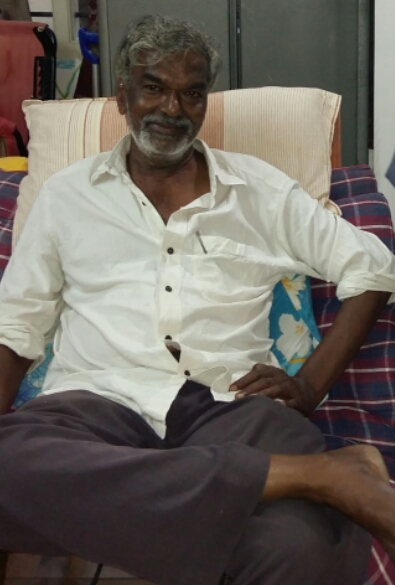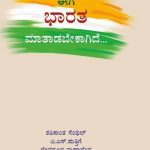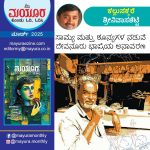Why Does the Word ‘Dalit’ Make the Government So Resentful?-Devanoora Mahadeva
Let’s not forget that in India, people adopted the word ‘Hindu’ – even though it was given by outsiders – so that the caste system could work as a religion. Whatever objections we may have to that, we still have to understand it as the generosity of India’s spirit.
Now the fact that India’s hundreds of taḷa (marginalised) communities – those who are cast aside, broken; who don’t accept the four-fold varna system; the fragmented and the scattered – are calling themselves ‘Dalit’ has made the Central government see red.
Why is the Central government so resentful? I don’t understand this. The word ‘Dalit’ is not encircled by the caste system. Is that why? It seems so.
In order to understand this, I will give you an example – there is a Kannada word, ‘taḷa’, loosely translated as base/bottom. ‘Taḷa’ has several meanings including place, foundation, native and so on. Hundreds of ‘outcast’ and marginalised groups torn and wilted by caste transcending their small fissures and organising on the vast platform called ‘Dalit’ indicates they are moving towards the secular, in whatever little way possible. But the casteist Indian mind interprets secularism as a blow to its very roots.
India has forgotten the outstanding mind that was Dharmananda Kosambi, who regretted having been born a Brahmin. Those who are dipping into the dirty sewage water that is caste, caught in the delusion that it is Ganga’s pure water, should have at least a little bit of his sensitivity birthed in them. This is needed immediately for the very survival of India today.
What should we do about this? There is no need for talk. Just like clothes with the “Ram Ram” design, Dalit musicians wearing clothes with a “Dalit Dalit” design should speak via playing their instruments – like the tamate. Let the answer to this be Dalit music festivals in every state. Because if the wilted Dalit cultural expression flowers, then tolerance, love, cohabitation and substantive equality could also grow. This could, perhaps, set the course for a directionless India.
[Devanoora Mahadeva, acclaimed Kannada writer, Dalit activist and Swaraj India leader, is the author of Kusumabale, which won the 1990 Sahitya Akademi award. He was also conferred the Padma Shri in 2011, both of which he returned, in 2015, to mark his stand against growing intolerance in the country.]








